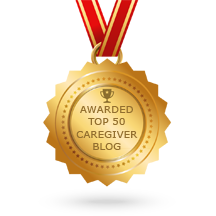Elder Rage: How to Survive Caring for Aging Parents
By Jacqueline Marcell, Author, ‘Elder Rage’ www.ElderRage.com
For eleven years I pleaded with my ‘challenging’ elderly father to allow a caregiver to help him with my ailing mother, but he always insisted on taking care of her himself. Every caregiver I hired soon sighed in exasperation, ‘Jacqueline, I just can’t work with your father. His temper is impossible to handle and he’s not going to accept help until he’s on his knees himself.’
When my father’s inability to continue to care for my mother nearly resulted in her death, I stepped in despite his loud protests. It was heart-breaking as one minute he’d be my loving dad and then some trivial little thing would set him off and he’d call me nasty names and throw me out of the house the next. I took him to several doctors, only to be flabbergasted when he could act completely normal when he needed to.
Finally I stumbled upon a thorough neurologist, specialized in dementia, who put my parents through a battery of blood, neurological, memory tests and P.E.T. scans. After ruling out numerous reversible forms of dementia, such as a B-12 and thyroid deficiency, and evaluating their medications, I was stunned by the diagnosis of Stage One Alzheimer’s in both of my parents–something all their other doctors missed entirely.
What I’d been coping with was the beginning of Alzheimer’s, which starts very intermittently and appears to come and go. I didn’t understand that my father was addicted and trapped in his own engrained bad behavior of a lifetime of screaming and yelling to get his way, but that it was coming out intermittently in inconsistent spurts of irrationality. I also didn’t understand that demented does not mean dumb (a concept not widely appreciated), and that he was still socially adjusted never to show his ‘Hyde’ side to anyone outside the family. Conversely, my mother was as sweet and lovely as she’d always been.
Alzheimer’s makes up 60-80 percent of all dementias and there’s no stopping the progression nor is there yet a cure. However, if identified early there are four FDA medications (Aricept, Exelon, Razadyne and Namenda–and many more in clinical trials) that in most people can mask dementia symptoms and keep the patient in the early independent stage longer.
Once my parents were properly treated for the Alzheimer’s, as well as the often-present depression in dementia patients, and then my father’s aggression, I was able to optimize fluid and nutrition with much less resistance. I was also able to manage the rollercoaster of challenging behaviors. Instead of logic and reason, I learned to use distraction and redirection. I capitalized on their long-term memories and instead of arguing the facts, I lived in their realities of the moment. I also learned to just go-with-the-flow and let hurtful comments roll off. And most importantly, I was able to get my father to accept two wonderful live-in caregivers. Then with the tremendous benefit of adult day health care five days a week for my parents and a support group for me, everything finally started to fall into place.
Alzheimer’s disease afflicts more than 5.4 million Americans, but millions go undiagnosed for many years because early warning signs are chalked up to stress and a ‘normal’ part of aging. Since one out of eight is afflicted with Alzheimer’s by age 65, and nearly half by age 85, healthcare professionals of every specialty should know the 10 Warning Signs of Alzheimer’s and help educate patients and families so everyone can save time, money–and a fortune in Kleenex!
TEN WARNING SIGNS OF ALZHEIMER’S
www.ElderRage.com/Alzheimers.asp
###
Jacqueline Marcell is the author of ‘Elder Rage’, a Book-of-the-Month Club selection receiving 480+ 5-Star Amazon reviews, 50+ endorsements www.ElderRage.com/review.asp, is required reading at numerous universities for courses in geriatrics and considered for a film. EXCERPT: www.ElderRage.com/samplechapter.asp. She is also an international speaker on Alzheimer’s, as well as breast cancer which she survived after caring for her parents. She also speaks on caregiver stress and illness, and Alzheimer’s now being termed ‘Type 3 Diabetes’, the Obesity Epidemic and Sugar Addiction. www.ElderRage.com/speakingengagements.htm




Recent Comments